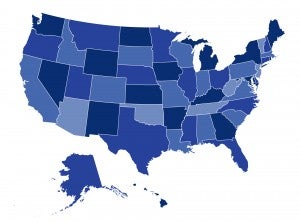
During February’s State of the Union address, President Trump touted his administration’s efforts to expand access to short-term health plans that do not comply with any of the Affordable Care Act’s (ACA) consumer protections. Short-term plans are often cheaper than ACA-compliant plans because they can deny coverage to people with preexisting health conditions, impose higher cost-sharing, and exclude entire categories of services. Still, advocates of short-term plans argue that they provide sufficient coverage for catastrophic medical situations, such as COVID-19. But while recent federal guidance requires private health insurers to cover COVID-19 testing and cost-sharing for related services, this requirement does not extend to short-term plans, which claim to be covering some costs but not all.
In a recent post support by The Commonwealth Fund, we reviewed plan brochures for 12 short-term plans currently being sold in Georgia, Louisiana, and Ohio and found that people enrolled in them have less financial protection if they need treatment for COVID-19 than people enrolled in ACA plans.
As consumers seek health coverage during the coronavirus pandemic, policymakers should consider whether short-term plans will meet their needs. Our review of current short-term plans shows that their limitations could be especially problematic for people who become ill and need care for COVID-19.
To learn more about the limitations of short-term plans during this pandemic, you can access the full blog post here.

